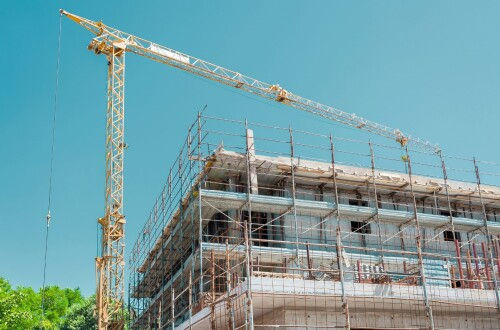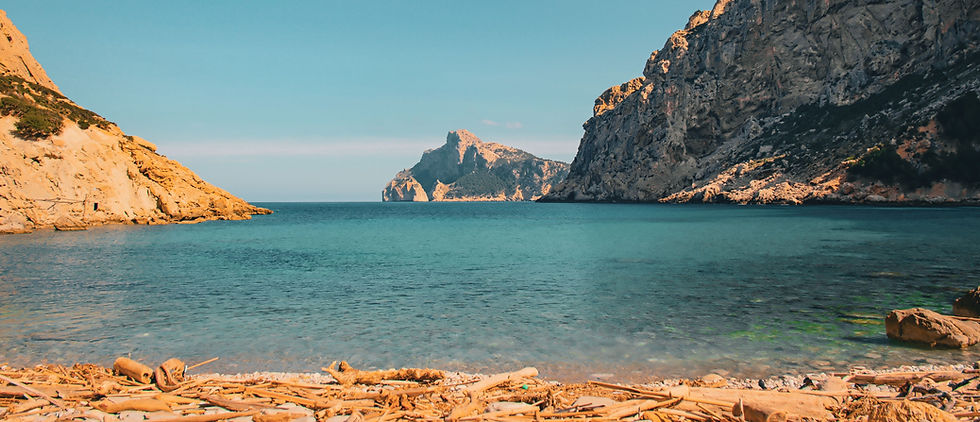Research from first year of BNG Market, Nuveen natural capital account, Economic value of Marine Artificial Structures
- eftec

- Jul 23, 2025
- 4 min read
In this Month's Newsletter:
The first year of BNG Market in England reveals what works and what does not
Our research shows the importance of clarifying exemptions to protect and enhancing nature
Nuveen Natural Capital publishes their natural capital account 3 years running
Using natural capital accounting as a strategic investment tool
Economic value of Marine Artificial Structures
Multi £million, 3-year research project to shape the future of MAS
The first year of BNG Market in England reveals what works and what does not
Our research shows the importance of clarifying exemptions in creating an efficient market and enhancing nature

Biodiversity Net Gain (BNG) is a key piece of planning legislation in England that aims to ensure new developments leave nature in a better state than it was found. The Government’s latest consultation on ‘Improving the implementation of Biodiversity Net Gain for minor, medium and brownfield development’ closes on July 24th. The consultation includes options around granting further exemptions from the BNG requirement. In particular, the government is considering exempting all small developments (up to 1 hectare in size).
eftec, funded by The Lifescape Project and Wildlife and Countryside Link, analysed the data from the first year of BNG practice in England to explore how changing size thresholds for exemptions could impact the market. The report, which featured in The Guardian, shows that within the current planning application system from March 2024 to February 2025:
86% of planning applications claimed they were exempt from BNG (far above the expected amount);
56% of all applications applying for exemption claimed a de minimis exemption, which applies when a planned development has an insignificant impact on any natural habitats; and
~30% of applications for large developments (over 1 hectare) claimed this de minimus exemption. This scale is not credible in all but a tiny number of exceptional circumstances.
These unexpectedly high rates of exemption claims may be due to exemption rules being poorly understood or monitored or intentionally misused. There is no legal obligation to provide evidence to support exemption claims when a planning application is submitted and no requirement on local planning authorities to request evidence to support.
Our analysis shows that if all small sites (under 1 hectare) were exempt from BNG, 97% of applications would be exempt from BNG requirement, rendering the market unnecessary and resulting in avoided BU compensation payments of up to £250 million a year.
If the BNG policy is not implemented for small developments, then action elsewhere will be needed to meet the Environment Act biodiversity target. Assuming the most common way of paying for nature protection, i.e., agri-environment payments, is used for this, it could cost taxpayers up to £190 million over the next 10 years. There is, of course, no guarantee that such payments will deliver the same level of net gain, if any at all.
It is possible to improve the system by reducing the exemptions for larger developments, avoiding administrative burdens on small developers and the planning system; and moving from a de minimis impact exemption to a de minimis size exemption. For full details of this potential and the analysis, please see the full report.
Nuveen Natural Capital publishes their natural capital account 3 years running
Using natural capital accounting as a strategic investment tool

Nuveen Natural Capital, an investment management firm, recently released their latest Sustainability Report, which includes a pilot natural capital account of their productive and support land investments.
eftec has supported Nuveen since 2021 from assessing the suitability of natural capital accounting for their properties to creating a baseline account and supporting future updates.
Ece Ozdemiroglu, eftec’s CEO, said in response to Nuveen’s report, “It has been a pleasure to support the Nuveen Natural Capital team over the years in piloting their natural capital accounts, broadening the coverage of their portfolios and enhancing their role as strategic tools.”
Ian Dickie, an eftec Director, was quoted in last year’s report, “We continue to support Nuveen Natural Capital as it expands the coverage and use of natural capital accounting across its portfolio. This rapidly developing work will significantly strengthen its nature-related reporting and disclosure capabilities, as well as support improved risk management and decision-making. We will remain a close partner, ensuring that the roll-out of its natural capital accounts align to the BSI 8632:2021 standard.”
For more information on eftec’s nature finance portfolio, check out our new Sectors page!
Economic value of Marine Artificial Structures
Multi £million, 3-year research project to shape the future of MAS

ValMAS (Value of Marine Artificial Structures) is a £5.6 million transdisciplinary research project led by Plymouth Marine Laboratory (PML) that is set to transform how offshore structures are managed across their full lifecycle. Image credit: PML 2025.
ValMAS (Value of Marine Artificial Structures) is a £5.6 million transdisciplinary research project led by Plymouth Marine Laboratory (PML) that is set to transform how offshore structures are managed across their full lifecycle. The project aims to support a just, nature-positive, and economically efficient transition to low-carbon offshore infrastructure.
eftec is supporting the project through monetary valuation of changes to marine ecosystem services and natural capital assets. The work builds on eftec’s history partnering with PML to uncover the value of marine ecosystems.
We will also explore how different ways of managing offshore structures, including wind farms and artificial reef, could account for trade-offs with other sectors such as conservation and commercial fishing. We will transfer our learnings from studies like the Natural Capital Analysis for North Sea Sandeels Fishery for Natural England.




Comments